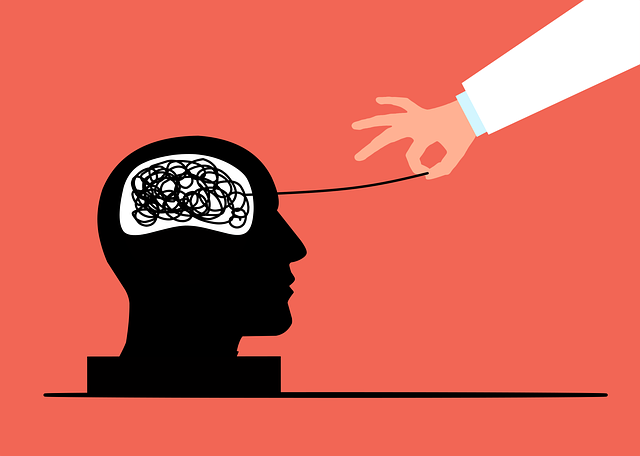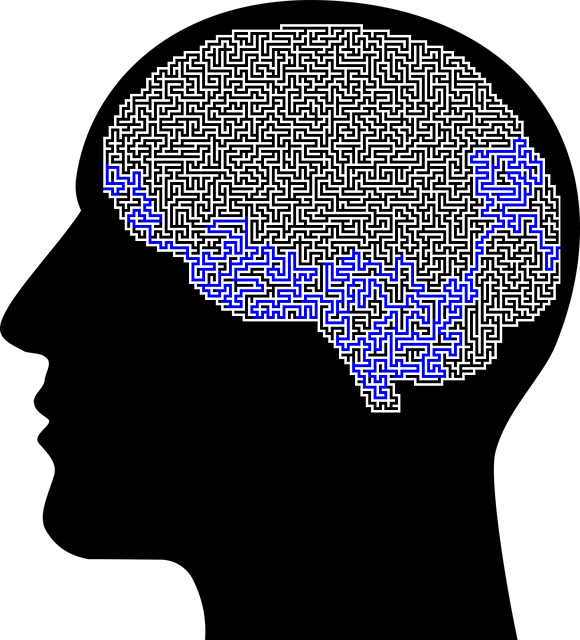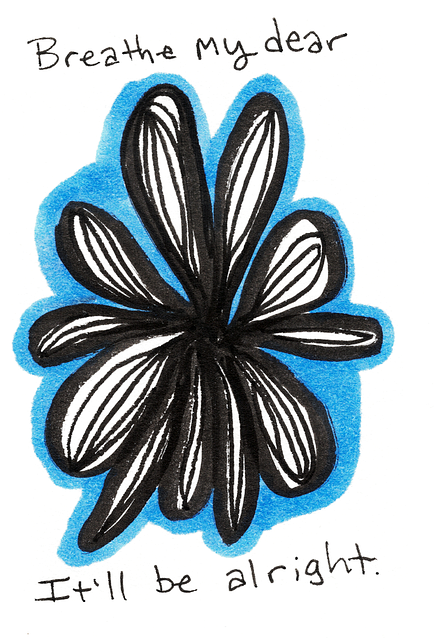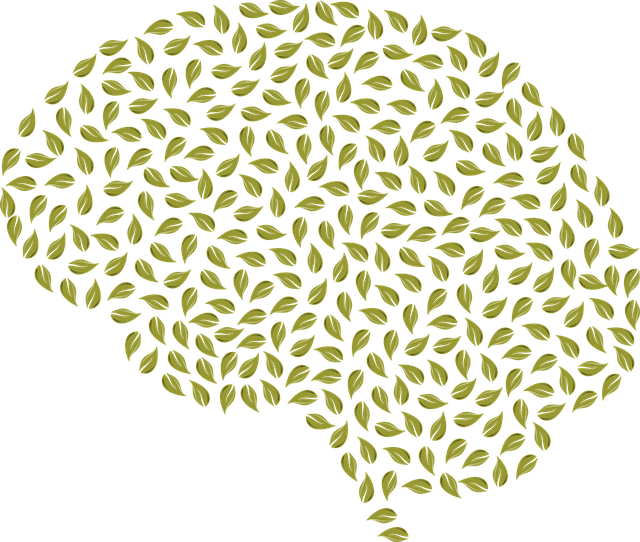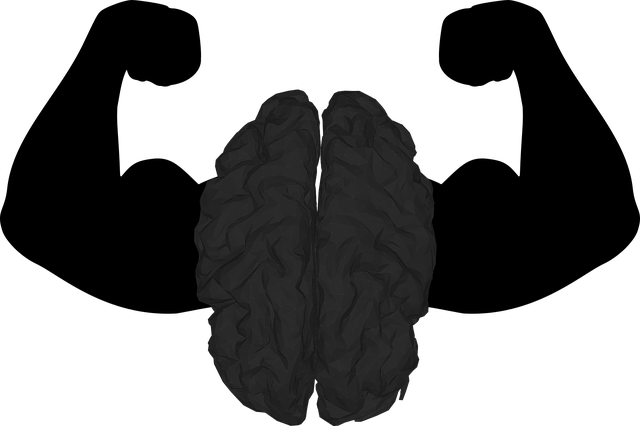Mental wellness promotion is a multifaceted approach aimed at fostering resilience and overall well-being. This article explores various aspects crucial for healing, focusing on understanding mental wellness, addressing trauma and abuse, and specialized treatments like Castle Rock Abuse Survivors Therapy.
We delve into strategies for building resilience and coping mechanisms, emphasizing the importance of supportive communities and open conversations. By examining these key areas, we aim to provide insights into effective promotion of mental wellness.
- Understanding Mental Wellness: A Foundation for Healing
- The Impact of Trauma and Abuse on Psychological Health
- Castle Rock Abuse Survivors Therapy: A Specialized Approach
- Strategies for Promoting Resilience and Coping Mechanisms
- Building a Supportive Community: Encouraging Open Conversations
Understanding Mental Wellness: A Foundation for Healing

Understanding mental wellness is a crucial step towards fostering healing and recovery for Castle Rock Abuse Survivors Therapy clients. It involves recognizing and valuing an individual’s emotional, psychological, and social well-being. This foundation is vital as it enables people to develop coping mechanisms, build resilience, and navigate life’s challenges healthily. By integrating self-care practices such as journaling exercises, cultural sensitivity in mental healthcare becomes more effective, ensuring diverse populations feel seen and heard.
Through education and open dialogue, clients gain insights into their emotions, behaviors, and thought patterns. This awareness encourages them to adopt healthier habits, improve communication skills, and enhance overall mental wellness. The journey towards healing is personalized, and each individual’s unique experiences shape their recovery process. Mental Wellness Journaling Exercise Guidance plays a significant role in this, offering a safe space for expression and reflection.
The Impact of Trauma and Abuse on Psychological Health

The impact of trauma and abuse on psychological health cannot be overstated. Experiences such as Castle Rock abuse survivors therapy highlight how profound and long-lasting the effects can be. Trauma, whether it stems from physical, emotional, or sexual abuse, neglect, or adverse childhood experiences, often leads to a myriad of mental health issues if left unaddressed. Survivors may grapple with conditions like post-traumatic stress disorder (PTSD), depression, anxiety disorders, and substance abuse, among others. These challenges can significantly impair daily functioning, affecting relationships, work performance, and overall quality of life.
Castle Rock abuse survivors therapy offers a lifeline for those dealing with the aftermath of trauma. Through specialized treatments tailored to address the unique needs of abuse survivors, this approach leverages evidence-based practices like cognitive behavioral therapy (CBT) and eye movement desensitization and reprocessing (EMDR). By fostering positive thinking and promoting resilience, these therapeutic interventions help individuals process their traumatic experiences, develop healthy coping mechanisms, and regain a sense of control over their lives. Additionally, healthcare provider cultural competency training plays a crucial role in ensuring that survivors receive culturally sensitive trauma support services, further enhancing the effectiveness of treatment.
Castle Rock Abuse Survivors Therapy: A Specialized Approach

Castle Rock Abuse Survivors Therapy (CRAST) is a specialized approach designed to support individuals who have experienced abuse or trauma. This therapeutic method goes beyond traditional mental health care by addressing the unique needs of survivors, focusing on both the psychological and emotional aspects of their healing journey. CRAST recognizes that trauma has profound effects on an individual’s ability to regulate emotions, maintain healthy relationships, and develop a robust self-care routine for better mental health.
By employing tailored strategies, this therapy helps clients manage complex emotions, such as anxiety and depression, often associated with traumatic experiences. It facilitates the development of effective coping mechanisms, promotes emotional regulation, and enables survivors to navigate their past while building resilience for a brighter future. In light of these efforts, CRAST emerges as a game-changer in mental wellness promotion, emphasizing the importance of specialized support for those who have endured abuse.
Strategies for Promoting Resilience and Coping Mechanisms

Promoting resilience and healthy coping mechanisms is a key aspect of mental wellness promotion, especially for individuals who have experienced trauma or challenging life events. Castle Rock Abuse Survivors Therapy (CRAST) recognizes that building strength and adaptive strategies is vital for long-term recovery. One effective approach is through structured support groups where survivors can share their experiences, gain peer support, and learn from one another’s resilience. These safe spaces encourage open dialogue, fostering a sense of community and understanding.
Additionally, CRAST offers specialized Stress Management Workshops designed to empower individuals with practical tools for coping with stress and adversity. These workshops focus on techniques such as mindfulness meditation, deep breathing exercises, and cognitive reframing, enabling participants to develop confidence in their ability to navigate challenging situations. By combining group therapy, individual support, and education on stress management and mental wellness, CRAST holistically addresses the needs of survivors, helping them build resilience and enhancing their overall quality of life.
Building a Supportive Community: Encouraging Open Conversations

Building a supportive community is an integral part of promoting mental wellness. This involves creating safe spaces where individuals feel comfortable sharing their experiences and emotions freely. In Castle Rock Abuse Survivors Therapy, for instance, fostering such communities can significantly aid in healing and recovery. Encouraging open conversations breaks down barriers associated with stigma, empowering people to seek help without fear of judgment.
By nurturing a culture that embraces vulnerability, we strengthen the bond between individuals and their support systems. This is crucial in preventing depression and promoting inner strength development. Crisis intervention guidance becomes more effective when community members are attuned to each other’s mental health needs, offering a helping hand whenever necessary. Such openness can be cultivated through regular group discussions, peer mentoring programs, and inclusive events that celebrate diversity and shared resilience.
Mental wellness promotion is a multifaceted endeavor that begins with understanding and addressing foundational issues like trauma and abuse. The specialized approach of Castle Rock Abuse Survivors Therapy plays a pivotal role in healing by providing targeted support for those who have experienced psychological harm. By fostering open conversations and building supportive communities, we can empower individuals to develop resilience and coping mechanisms, ultimately enhancing their mental wellness. These strategies collectively create an environment that encourages recovery and fosters overall well-being.


